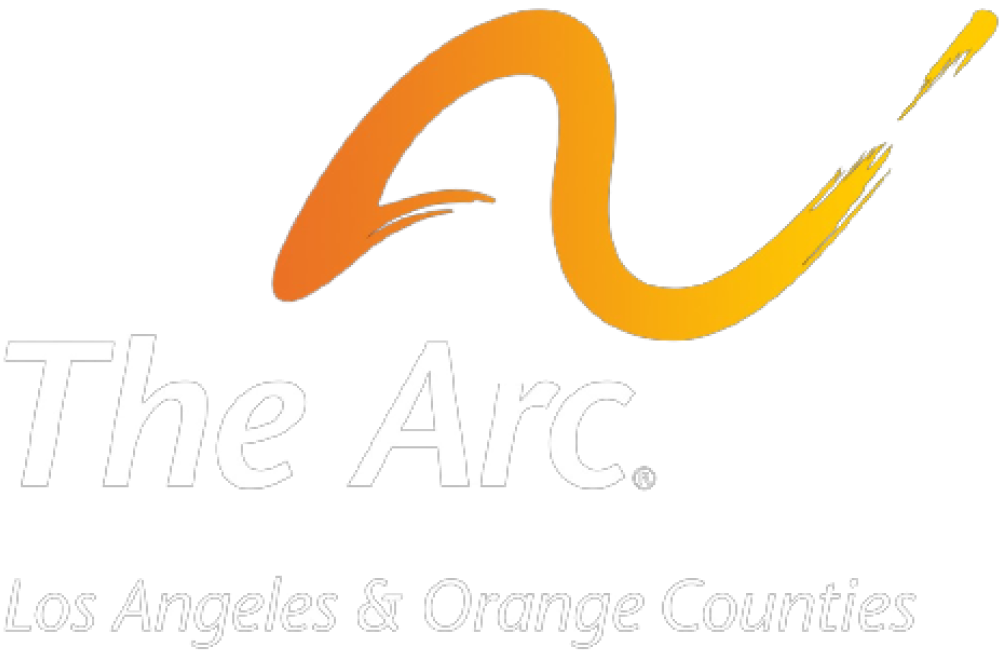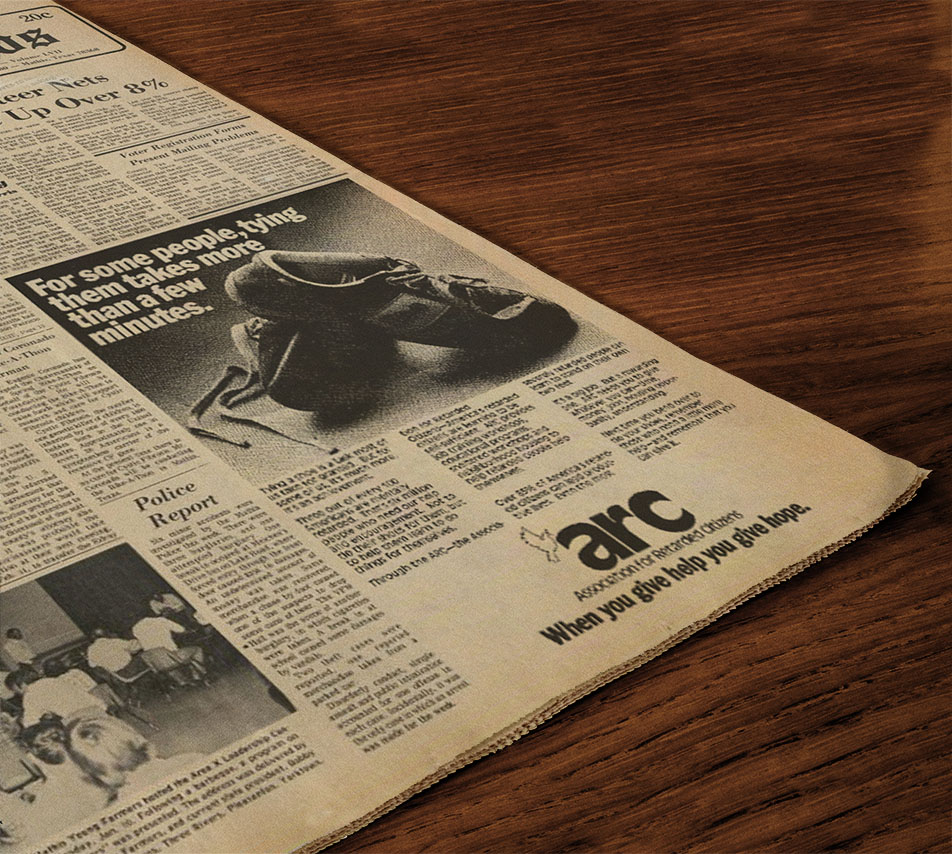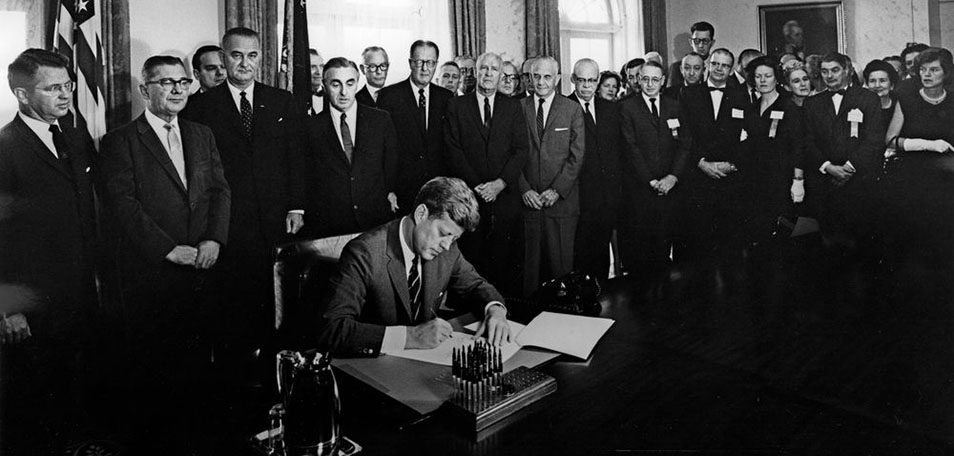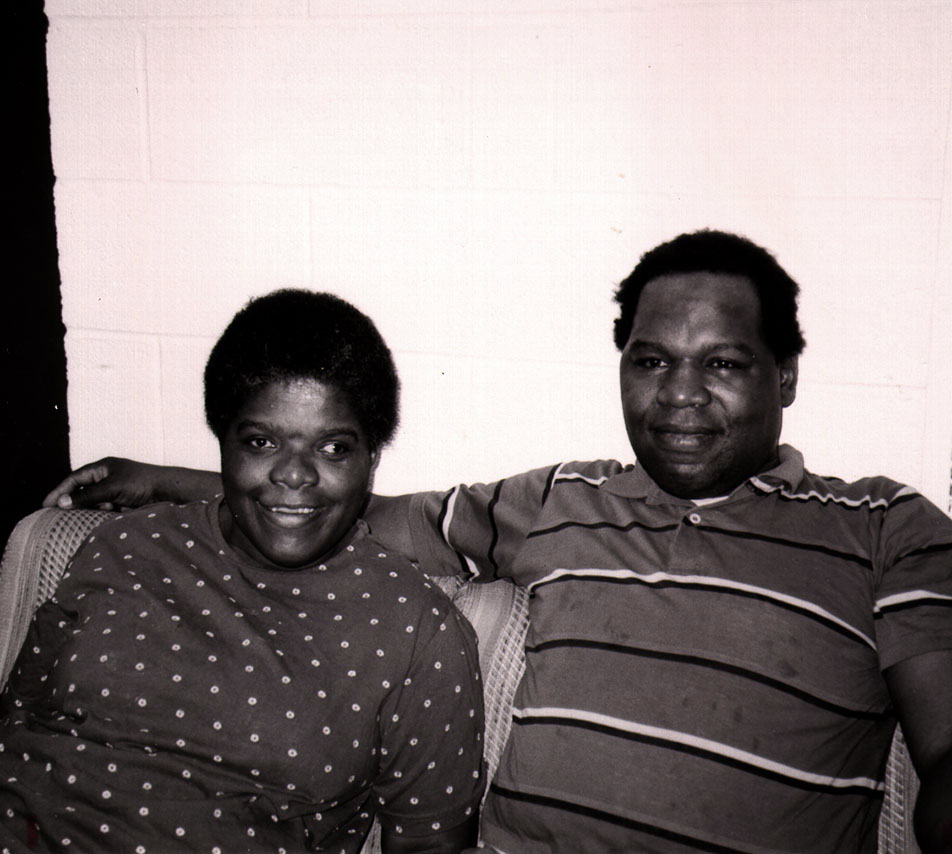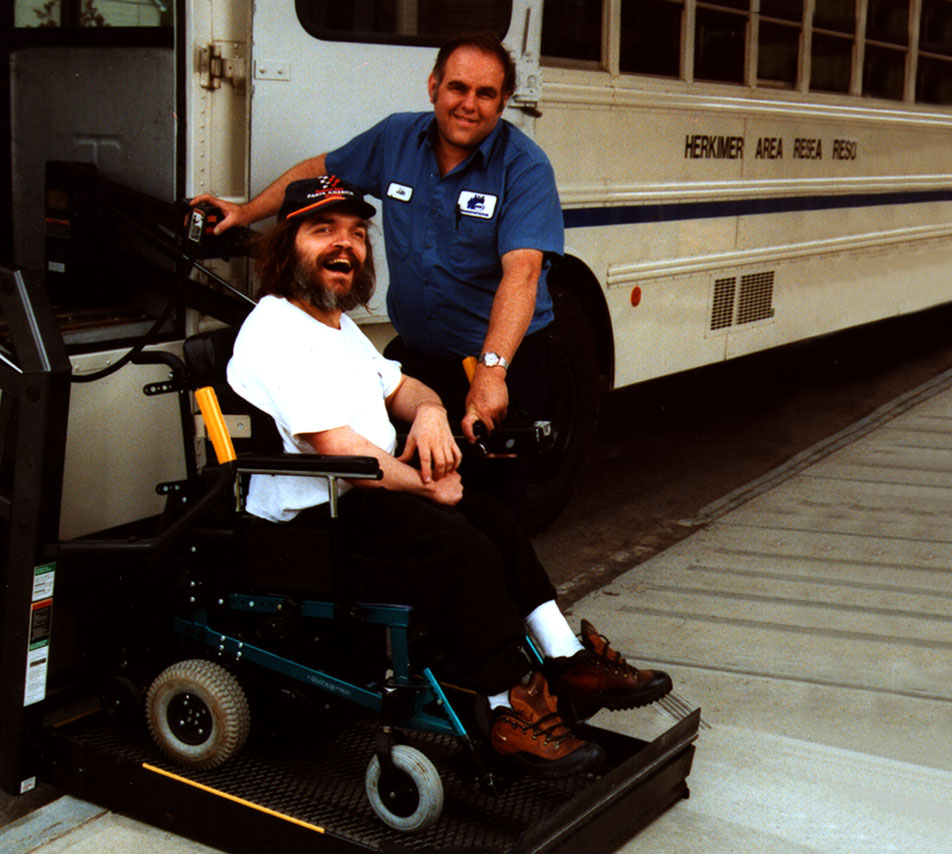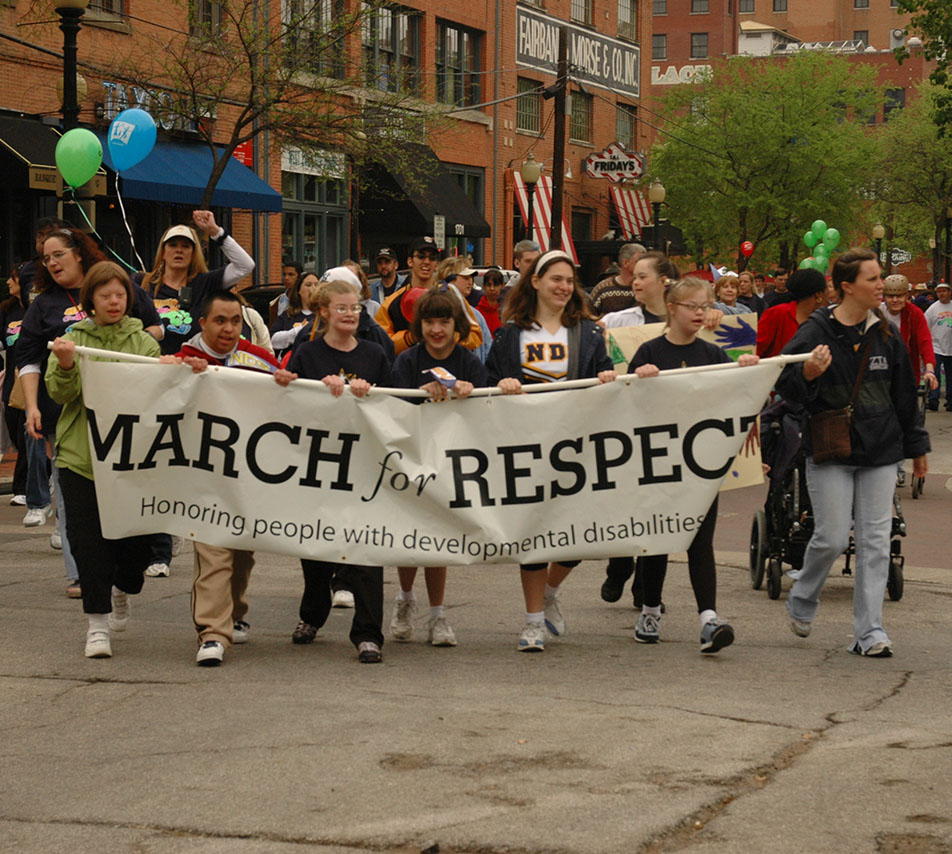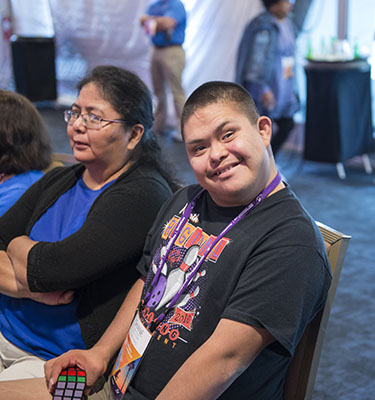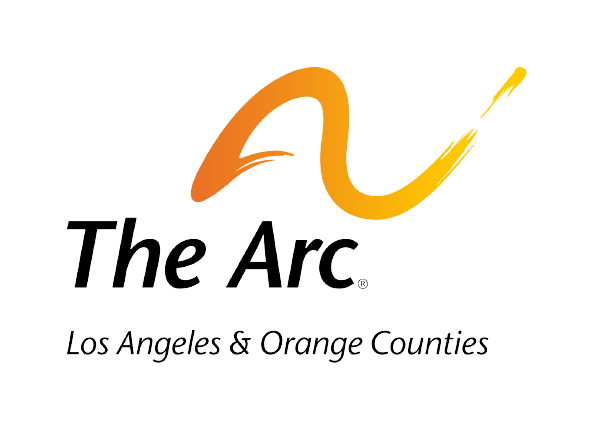The Power of Parents
In 1950, little was known about intellectual disability (then referred to as ‘mental retardation’) and developmental disability, or its causes. There were virtually no programs and activities to assist in the development and care of people with I/DD or to support families. It was common for doctors to tell parents that the best place for their child was in an institution. But these advocates wanted more. They wanted their loved ones to lead fulfilling lives in the community and not be shuttered away in dark institutions. Emboldened by their collective desire to raise their children in the home and their refusal to accept that institutionalization was the only option, The Arc was born.
Through the decades, The Arc has advocated for the passage of state and federal legislation on behalf of people with disabilities and established a broad network of state and local chapters that range from small voluntary groups to large, professional organizations.
Changing With the Times
Words matter. Over time, as the words ‘retardation’ and ‘retarded’ became pejorative, derogatory, and demeaning in usage, the organization evolved its terminology to reflect the desires of people with disabilities, and changed its name to ‘The Arc’. While the term still appears occasionally, it has largely been replaced and usage of ‘intellectual disability’ and ‘developmental disability’ continues to spread.
We are doing everything in our power to make sure they’re adopted more broadly and strongly believe the only ‘r-word’ that should be used when referring to people with intellectual and developmental disabilities is respect.
Name History
1953 – 1973: National Association for Retarded Children (NARC)
1973 – 1981: National Association for Retarded Citizens (NARC)
1981 – 1992: Association for Retarded Citizens of the United States (ARC)
1992 – Present: The Arc of the United States (The Arc)
Timeline: The Arc Through the Years
Over the last several decades The Arc has been at the forefront of making change happen. Whether through advocacy or by supporting research efforts, The Arc leads the way. Here are just a few highlights!
1950s
In 1955, Robert and Virginia Robbins moved their family from San Mateo to Lynwood, CA. In San Mateo, their daughter had attended the cooperative pre-school made available by the San Mateo County Arc. Upon moving to Lynwood, they were disappointed to discover that there were no comparable programs in the area. Working to rectify this, Virginia located other local families who had school-age children with IDD. She recruited the parents of these children to form a committee, which convinced the Lynwood School Board to help them start a dedicated class for children with IDD. Once the class was up and running, the committee voted to formally organize as an association. They became The Lynwood Arc, part of The Arc and of The Arc of California.
1960s
Parents of older children with IDD began expressing interest in joining the Lynwood Arc, looking for a program that would provide work training to their children. Their kids had already completed formal schooling and exhausted local resources such as recreation programs and hobby classes. They were ready to do something new, while earning a salary.
The Southeast Work Training Center opened in July 1962 and offered services to individuals with IDD in all Southeast communities of Los Angeles County. The Lynnwood Arc changed its name to the Southeast Arc to reflect its expanding reach. Participants were taught piecework such as assembly, packaging, stuffing, collating, etc.
The following year, the Southeast Arc hired a Trainee Supervisor and a driver and purchased a van to pick up and deliver material for the Arc’s customers.
1970s
By 1970, The Southeast Arc had outgrown its rented quarters on Brookshire. The new location at 9501 Washburn Road is still in use by The Arc LAOC today.
In 1972, The Southeast Arc opened the Activity Training Center with the cooperation of the Downey Adult School, and the following year initiated a Food Service Program with the help of Downey Unified School District Adult Education System. The program was designed to provide training in the preparation and serving of food including all kitchen skills related to cafeteria operation. Food was prepared in the kitchens at Columbus High School and was served daily in the cafeteria of the Southeast Work Training Center. Additionally, each Monday evening at Columbus High School, a meal was prepared for and served to senior citizens.
In 1978, The Southeast Arc received its first CARF accreditation. And in 1979, the Association purchased the corporate office building at 12049 Woodruff Avenue, which still serves as The Arc LAOC’s corporate headquarters and houses several programs.
1980s
The Arc conducts a survey of state genetic screening programs. A listing of each state’s specific infant screening tests is developed and distributed to The Arc’s state and local chapters.
The Arc supports the passage of the Medicaid Home and Community-Based Waiver.
The Arc helps create the Supported Employment program within the Rehabilitation Act.
The Arc successfully pushes Congress to add disability as a protected class under the Fair Housing Act.
The Arc helps pass legislation to expand education services to infants, toddlers, and preschoolers.
1990s
The Arc receives a grant from the U.S. Department of Energy to implement a project to educate The Arc community about the ethical, legal, and social implications of the Human Genome Project.
The Arc receives a grant from the Centers for Disease Control and Prevention to support the development and dissemination of the Fetal Alcohol Syndrome Resource and Materials Guide.
The Arc is a leader among national disability groups to advocate for the landmark Americans with Disabilities Act.
2000s
The Arc participates in the drafting of the United Nations Convention on the Rights of Persons with Disabilities.
The Arc wins expanded provisions in the Individuals with Disabilities Education Act and the Higher Education Act that will help students move from public schooling to higher education, employment, and adult life.
The Arc, in collaboration with the American Association on Intellectual and Developmental Disabilities, publishes National Goals and Research for People with Intellectual and Developmental Disabilities, a book highlighting challenges to achieving the government’s promise to people with disabilities.
2010-Present
The Arc works with other organizations to support passage of the Affordable Care Act, which expanded access to affordable and comprehensive health coverage, made improvements in long term supports and services, and strengthened consumer protection and nondiscrimination provisions.
The Arc supports passage of Rosa’s Law, which replaces the outdated term “mental retardation” with intellectual disability in federal health, education, and labor policy.
The Arc supports passage of the ABLE Act which creates tax-advantaged savings accounts for individuals with disabilities which are exempt from means-testing in federal programs.
The Arc is instrumental in defeating attempts by Congress to block grant and cap Medicaid, a change in the structure of the program that would have had great impact on the lives of people with disabilities.
Discover More
Learn more about the values that guide our work.
